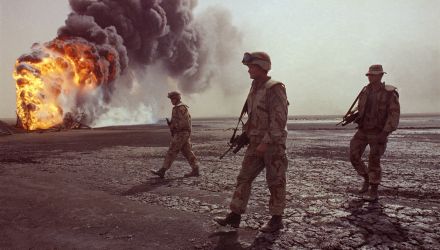WASHINGTON, D.C. -- To spend time speaking and listening to a wide range of people in Washington, D.C. on Middle Eastern issues, as I did last week, is to wander into a world of deep perplexity, for two main reasons: Every pillar of the United States’ Middle East policies is changing rapidly, and much of the change sees Middle Eastern actors taking charge of their own destinies, leaving the United States in a strangely weakened and often marginalized position. The principal manifestations of this situation are the behavior of the Palestinians, Saudis, Egyptians, Israelis, Turks, and Iranians, and the Russians and Chinese from outside the region. The two most telling arenas where American perplexity rises to the surface are the Palestinian bid for UN recognition and the Arab citizen rolling revolts across the region.
The most dramatic window into America’s confusion, contradictions, and degraded credibility is its inability to stop the forward motion of the Palestinian bid for United Nations recognition of statehood in the pre-1967 borders. This has dramatically exposed Washington’s sharp isolation in the region, because its strong commitment to Israel apparently overrides any other issue there, including applying the international rule of law on problems like Israeli settlements expansion. The Palestinians not only dismissed strong American objections about the move at the UN, but have now followed this up with a request for recognition at UNESCO, which has received preliminary approval from the body’s executive board. The United States has threatened to cut off its funding for UNESCO, which accounts for 22 percent of the body’s budget. In the new world we are entering, the Palestinians are acting, and Washington is reacting.
This is just one example of how the strongest power in the world also may be the weakest power in the Middle East, despite its armed forces fighting two wars in Iraq and Afghanistan. The isolation of the American-Israeli delegations at the UN reflects a wider reality. Across the region, most people and governments see American policies as being contrary or even hostile to their wellbeing. This will continue to be highlighted by the Palestinian move at the UN in the months ahead.
The Palestinian quest for UN recognition is now widely debated across the United States, with the common denominator attitude in Washington being total uncertainty about its direction and implications. Even Palestinian officials close to President Mahmoud Abbas are not certain of what happens next, because three primary dimensions of the move remain unknown: the Palestinian strategy, its impact on the ground, and American-Israeli retributive reactions. The UN move is intriguing at many levels, most importantly for what it tells us about the determination of even the weak Palestinian leadership to defy the United States and shift the adjudication of the Arab-Israeli conflict out of Washington and into the halls of the UN or other bodies -- where international legitimacy and law, rather than American Zionism, define the ground rules of diplomatic engagement.
The central lessons to date of the Palestinian initiative at the UN is that power is something you generate by your actions, and credibility as an international political actor comes from harnessing your power and using it efficiently and wisely. The Palestinian leadership seems to have learned the first lesson, and is pursuing the UN initiative in a manner that reveals its capacity to shake up a stagnant diplomatic arena vis-à-vis the Palestine issue.
Ironically, though, as UCLA Professor Saree Makdisi pointed out in his Edward Said Memorial Lecture at the Palestine Center in Washington last week, President Abbas seemed embarrassed to see that he actually had power and autonomy of action that he could use, and seemed hesitant to use the power at his disposal. While Abbas unleashed the enormous international support for the Palestinian cause, Makdisi said, he also seemed unsure of how far he should push for implementation of key UN General Assembly resolutions, such as 181 and 194, appearing unsure if he should be assertive or apologetic. Makdisi attributes this in part to his analysis that Abbas was only involved in “political theater” at the UN, rather than a serious diplomatic deployment of power, and also was hampered because he made no attempt to secure Palestinian popular legitimacy for his “high stakes poker game at the UN.”
Regardless of whether the Palestinian leadership is moving ahead according to any coherent strategy, or enjoys any significant legitimacy or support among its own people, it has triggered significant debate in Washington that has also exposed the enormous confusion and contradictions in Washington’s unsuccessful attempt to be both the guarantor of Israel’s supremacy in the region and a mediator for the birth of a Palestinian state. Unable to live with this situation any longer, the Palestinians have taken the initiative to break the stalemate, and the United States seems unsure how to react.
Rami G. Khouri is Editor-at-large of The Daily Star, and Director of the Issam Fares Institute for Public Policy and International Affairs at the American University of Beirut, in Beirut, Lebanon.
Copyright © 2011 Rami G. Khouri -- distributed by Agence Global
Khouri, Rami. “Power and Confusion in the United States and Palestine.” Agence Global, October 10, 2011





